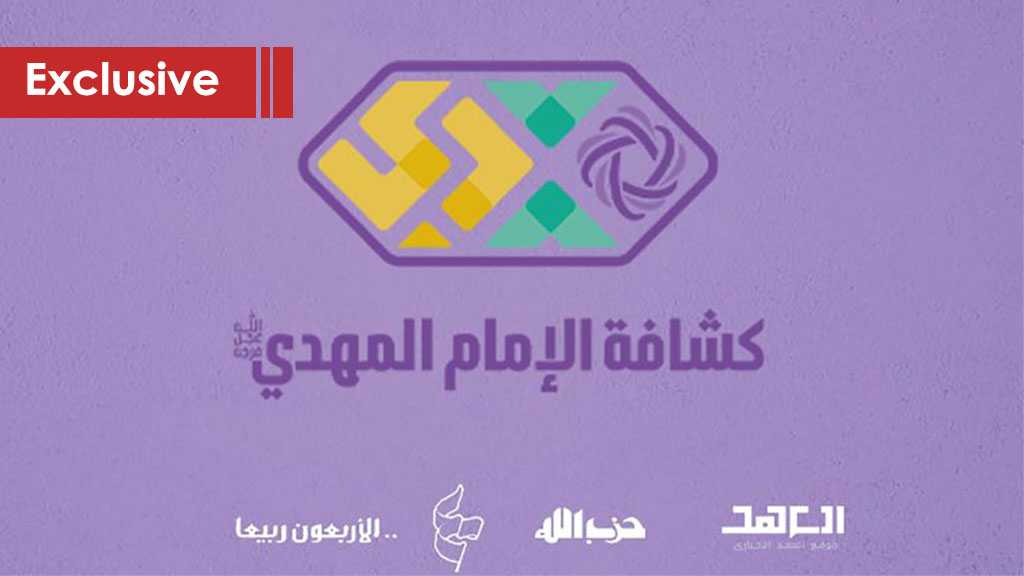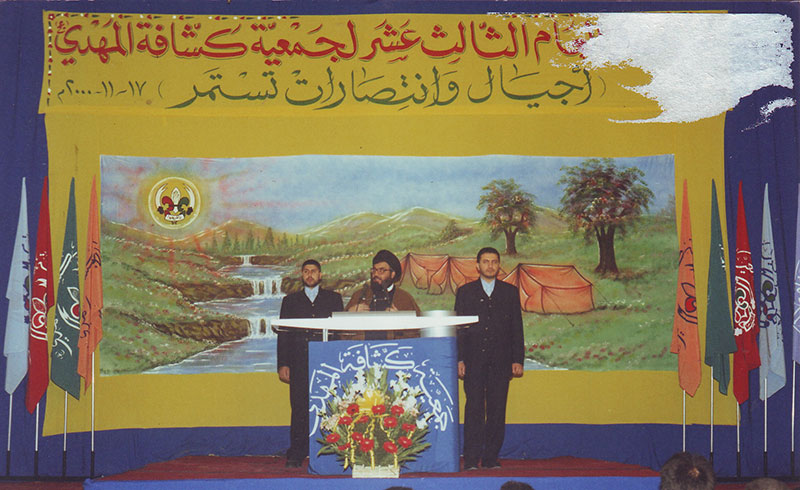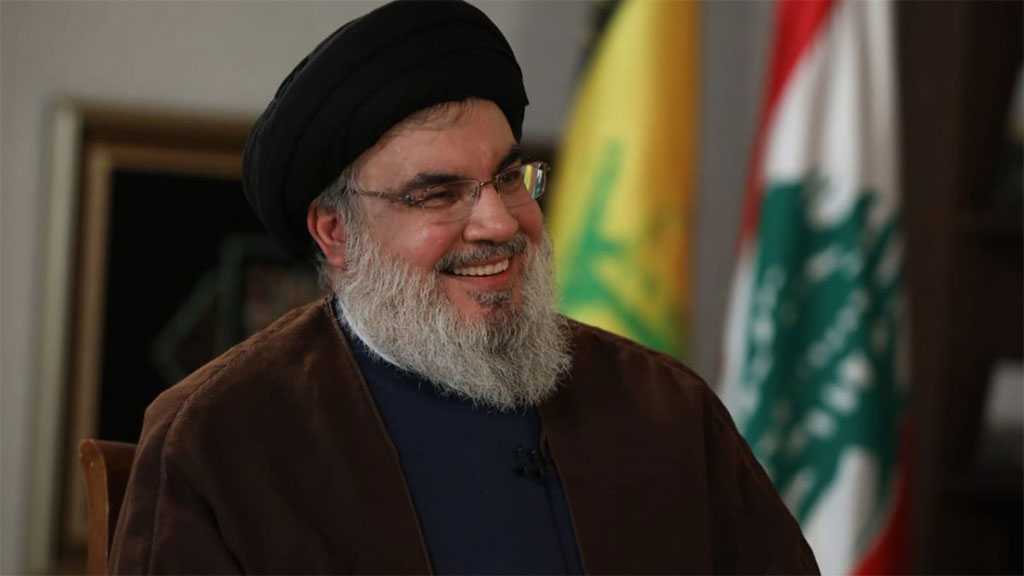
Lebanon’s Largest Scouts Association: The Imam Al-Mahdi Scouts

By Al-Ahed News
Forty years have passed and the soul is still resistant. In 1985, the largest scouting organization in Lebanon was launched from the roots of the land, rejecting the humiliation of the “Israeli” occupation. The scouts have an official anthem:
I walk as a scout, I obey my Lord and the Book
My homeland is the monument of immortality, the limit of youth's resolve
Among us are cubs who become men that lead life with honor
Among us are senna flowers that become guides and leaders
Al-Ahed News delves deeper into Lebanon’s Imam Al-Mahdi Scouts in an interview with the head of the association, Sheikh Nazih Fayyad.
Sheikh Fayyad starts off by talking about the association’s early days.
"The Imam al-Mahdi Scouts is a project that was launched in the minds, aspirations, and hopes of pious brothers. The period between 1982 and 1985 was the period of resistance and the secret formation. During this stage, everyone was perfectly aware of the importance of building a new and emerging generation, fortifying it, and keeping it away from all forms of cultural invasions and soft warfare.”
The Mujahideen had the military spirit as well as deep cultural, educational, and religious projects and ideas. For them, the youth and young people were the fertile environment in which this project grew.
Sheikh Fayyad refers to “many field initiatives that originated within this framework before 1985 in Beirut and the Bekaa and then moved to the south. But in 1985, the idea was finalized and began to materialize. Those who came up with the initiatives, which were sometimes spontaneous and inspired by the values of this project and march, met and established the Imam al-Mahdi Scouts. They gave official names for all the regiments and set the goals.”
Hence, in 1985 the scene was set. According to Sheikh Fayyad, “a group of regiments began to work in more than one area. Much of the deployment was in the Bekaa and Beirut and then other areas of the south after liberation.”
The Goals
Sheikh Fayyad told Al-Ahed News about some of the goals the association worked on, including “raising that generation in line with an Islamic and Qur’anic education and love for Ahl al-Bayt. It centered on building beliefs, culture, and a sense of belonging to the homeland and saving people from temptations in an era of “Israeli” occupation, enlightening this generation, building young people with understanding, awareness, competence, and logic, and building the basic skills an individual needs in life.
Also, children at this age need life skills, self-reliance, useful hobbies, and the right education to be useful in their society. All these elements, if ignored or neglected, would have produced a different, perverted generation with problems. That is why we had a vision to build a society based on moral, religious, and national values and what was later called the resistance society.”

The association did not neglect another one of its goals which is “the urge to seek knowledge. During that period, the number of those abandoning their education (school dropouts) increased as a result of wars and poverty. The Scouts sought purposeful entertainment, building beneficial relationships, and channeling the energy of children and the youth in the right directions to build society and serve the cause.”
Liberation and the South
During the period of the “Israeli” occupation of southern Lebanon, the Scouts did not engage in any activity in the villages under occupation.
“We directly tried building the regiments in all the villages and places that were liberated successively until the 2000 liberation stage – when the ‘Israelis’ were finalizing their retreat. The leaders of the Scouts and the Commission decided when to start the establishment of the scouting work and to invite the children who were deprived and expelled from their homeland. With record speed, regiments were established in all the villages from which the occupation withdrew,” said Sheikh Fayyad.
Development
Sheikh Fayyad points out that “the association’s vision and role have evolved over the years. The main direction in the beginning was recruitment and education. Religious education was the main focus.
“With the passing of time and the successes and the growing experiences of the leaders (the scout leaders who started in 1980s, became fathers in the 1990s and are grandfathers today), we now have a community made up of individuals belonging to this scouting march. With each generation, the level of competence grew.”
In 1992, the Imam al-Mahdi Scouts had 1,600 members, but today, there are 75,000 scout members.
“The expansion of this association is extraordinary. We have training systems and great educational and scientific competencies. Previously, the average educational level for scout leaders was high school. However, today the average is a university education, with a great percentage of them being holders of postgraduate degrees. This factor had a positive impact on efficiency and effectiveness. Hence, the association’s role evolved from being a recruiter and an educator of individuals to building the youth and scout leaders whose influence in public life evolved.
"We expanded. We nourished our relationship with our surroundings, and we developed the relationship to a familial one. So, we have a special way of dealing with people. Then, we moved to additional programs, including qualitative theatrical and musical works, which showed great talents.”
After the July 2006 War
After the July 2006 war, the association set its sights on large projects.
"We were able to implement the idea of scout villages after this date. We have facilities such as the Imam Khomeini scout village (150,000 meters), which was established in 2009 and is open to the public. It is visited by scouts, families, athletes, and technicians. Exhibitions are also hosted there,”
Sheikh Fayyad explained.
“Also, in the Bekaa-Riyak, we have the martyr Sayyed Abbas al-Moussawi scout village and a modern scouting facility on the Asi River. The academy of skills and arts organizes courses and hands out certificates that are validated by the Ministry of Education in arts, music, directing, and media.
“We also established, for example, the Mahdi Media Agency. Through it, we set up workshops for training and induction of personnel. This type of work was a prominent feature of the Imam al-Mahdi Scouts.”
Community Development
After 2010, the association took on a more social role and became a "community development" commission. According to Sheikh Fayyad, this commission focuses on spreading awareness and providing services.
All current statistics show that the Imam al-Mahdi Scouts is the largest such organization in Lebanon, where 32 other scout associations operate.
Sheikh Fayyad reveals that “the number of leaders who volunteer in the Scouts is about 6000 (they are over 17 years old), and the average age of leaders in our association is under 22 years old. There are 75,000 active members, 40% of whom are women and 60% are men.”
This volunteer youth group (6000 young men and women), whose main task is to attract, educate, and build members, has an official mission established within the framework of community service groups, through which the association is getting involved in humanitarian work.
"On the one hand, we provide a service to the community and the people. On the other, we educate our youth and new generations on how to serve their society and families. They compete in providing services. 2021 was the year of foundation for these services, and 2022 is the year of officially launching community service regiments during a conference,” Sheikh Fayyad said.
The framework of the combined service produces young people who have skills, direction, and depth. This is in addition to the solidarity committees and Hezbollah’s work for the benefit of the people.
What About the Future?
“For the future, we look to young people,” Sheikh Fayyad says, “So far, the age group we are targeting ends at 17 years old. All those older than this age are scout leaders. However, in the next decade we hope that the association will have a youth framework for those from 18 to 25 years of age. We will try as much as possible to attract young people to be part of the community service program, to be servants of their community, and later to be managers, administrators, and distinguished people in the context of serving the community.”
The Scouts App
How do scouts engage with the virtual world?
"The educational approach of the association and the process of attracting [individuals] are based on the idea of personal relationships. The personality of the leader, the arrangement of the place, the nature of activities, movement and interaction are our capital.
“The idea of attracting, educating, and dealing remotely was a new, necessary, and important idea. In 2013, we conducted a study on the appropriateness of the association’s programs and activities with the preferences and interests of young people. 7000 children took part in the study. At that time, it was found that 80% of 14-year-olds had smartphones connected to the Internet. Children have become part of the digital sphere."
Sheikh Fayyad adds that the findings of the study facilitated the development of the educational curricula.
“This screen, to which the world was introduced, can fit in the palm of your hand. It entered the eyes and brain of a child, and it is difficult to stop him from engaging with it. So, we decided to enter this screen so that he can see us in it. It is true that there are problems and risks, but this is an inevitable bitter cup that may turn a threat into an opportunity.
"We keep pace with this generation, and we started with a set of artistic productions and training. We strengthened everything that falls under the title of social networking sites and productions commensurate with this world. But with the advent of 2020 that brought the coronavirus pandemic, we needed this world more, which accelerated our efforts."
According to Sheikh Fayyad, "all field scout groups are currently connected to a virtual scheme. Each scout squad, group of leaders, and regiment has a group to communicate with individuals. Each leader is connected to a group with their elements and leadership. There are lessons for the regiments about remote scout leadership, and we have made a set of recommendations and enjoyed successful and creative experiences.
“Our field leaders are ahead of us, and we have implemented flexible mechanisms to accept all new ways.”
The head of the Imam al-Mahdi Scouts Association reveals that “soon, the scouts will have a comprehensive platform – an application. The Association will have a virtual presence. The Imam al-Mahdi Scouts’ comprehensive educational app allows all children of any age group to be part of any program they choose, be it artistic, media, Qur’anic, etc."
Sheikh Fayyad believes that “one of the indications of the depth of the project of the Imam al-Mahdi Scouts Association is that it is the party’s institution that everyone embraces and relies on. His Eminence says to the leaders, ‘the bet is on them’.”
Sheikh Fayyad remembers the master of the martyrs of the Islamic Resistance, martyr Sayyid Abbas al-Moussawi, who used to visit the camps and sit among the leaders, and the great jihadi leader Hajj Imad Mughniyeh, who was a good follower of the Scouts but without public appearances. The Hajj was among the jihadi leaders who answered greeting messages from the association. He used to reply with similar greeting messages.”
What about the relationship with His Eminence the Secretary General of Hezbollah?
Sheikh Fayyad says that “the extent of the endorsement by the Secretary General His Eminence Sayyed Hassan Nasrallah for the association is perhaps the deepest, largest, and most indicative of personal attendance. Before assuming the general secretariat, Sayyed had pictures with the scouts and in the camps.
“In 1994, the Shura issued a decision that the Secretary General of Hezbollah would be the commander-in-chief of the Imam al-Mahdi Scouts, and he used to meet with cadres every three months until 1996. This contributed to raising the morale of the association. Since that time, he conducts annual follow-ups and a specific meeting that sometimes lasts up to 3 hours in which he talks to all the leaders.”
He points out that "in every meeting with His Eminence the Secretary General, we come up with a new mission, a new burden, and an extraordinary morale for male and female leaders that form our repertoire from year to year."
Comments

![Gen. Soleimani: Sayyed Nasrallah’s Entire Existence Is Sincerity… I Love Him [Documentary]](https://english.alahednews.com.lb/uploaded2/images/20220908122823.jpg)
![Hezbollah: Forty Dimensions of Uniqueness In Local & Regional Contexts [1/3]](https://english.alahednews.com.lb/uploaded2/images/20220826085658.jpg)